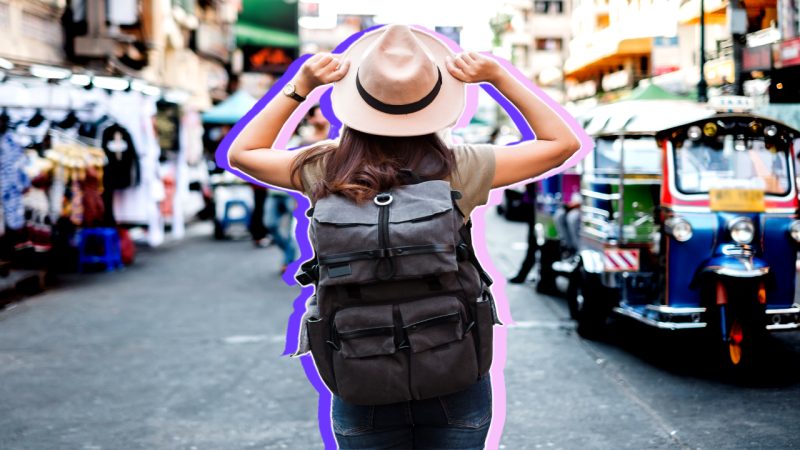Today is ‘Plan a Solo Holiday Day’, so all you globetrotters eager to explore the world on a solo mish might need a lil extra help with planning, but dw, we’ve got you covered!
If you think solo travel is for losers, think again, because research from Allianz Partners revealed over a third of single Kiwis aged 18-34 are eager to travel solo and 96% of Kiwis are ready to board a plane a jet off on adventure ASAP.

Of course, a lot of this has to do with GenZ spending their prime years in the never-ending (at least it felt like it) covid lockdowns that robbed many of us of our gap year experience. It’s no wonder loads of us are itching to get out and explore.
One of the best things any solo traveller can do for themselves is to be prepared and have a plan in place, ya know, on the odd chance that something goes tits up - it’s not often it does, but it’s one of those things that you’ll be bloody glad you did if/when the time comes.
Here are some top tips from Allianz CEO, Kevin Blyth to get you through your next solo mish abroad!
Do your research
While it can be fun to jump into a new city or country and see where the days take you, you’ll need to at least have the basics planned out.
- What's the safest neighbourhood to stay in?
- How to get to/from your accomodation?
- Where are the local emergency services located?
- Where is the NZ embassy if you're travelling abroad
Familiarise yourself with where to go in an emergency before you need to - just in case.
Emergency cash
While it’s important to make sure you’ve got enough spending money in your bank account, it’s also crucial to plan for some extra buffer funds for unexpected bumps in the road.
The exact amount will vary depending on the duration of your trip and what you can afford, but having at least $100 cash spare can come in handy.

If you have a medical emergency or lose your luggage, you may need to pay up-front and will be reimbursed by your travel insurance when you make a claim. Just be sure to keep your receipts.
* This happened to me last year during travel and let me tell you, there’s nothing worse than only packing one spare pair of undies in your carry-on…
Hidden wallet
When travelling it’s important you keep all of your important items hidden and on you at all times.
- Passport
- ID
- Cash
- Paper travel documents
Using a handy crossbody travel wallet or money belt you can hide under clothing is the way to go.
Leave a copy of your travel details with someone back home
While you may not have every hour of your holiday planned out, it’s important to share at least your basic travel plans and even a photocopy of your passport with someone you trust back home. Whether it’s your family, a flatmate or your partner, if you decide to change your travel plans on a whim mid-trip, be sure to update them so they know where you are in case of an emergency.
Carry a basic first-aid kit
Pack yourself a small first-aid kit before you travel to be prepared in case of an emergency or for the odd injury while you’re out and about.
You can buy a pre-made kit with the basics like plasters and antiseptic wipes then customize it by adding your personal medications and a note of any medical conditions you may have - this is one of the first questions you’ll be asked in the event of an emergency.
Book insurance
The best thing you can do to protect yourself, especially while travelling solo, is to book insurance. Whether you’re travelling domestically, flying across the ditch or going halfway across the globe, you never know what may go wrong and it’s best to be prepared.
Apparently, many people wait to book travel insurance just ahead of their trip, which could be a big mistake.
You can book your insurance anytime before your trip, but it’s best to ensure you’re covered from the time you book your tickets. This protects you (and your wallet) in case of disruptions, like medical emergencies, cancellations or delays, before you even step foot on a plane.





